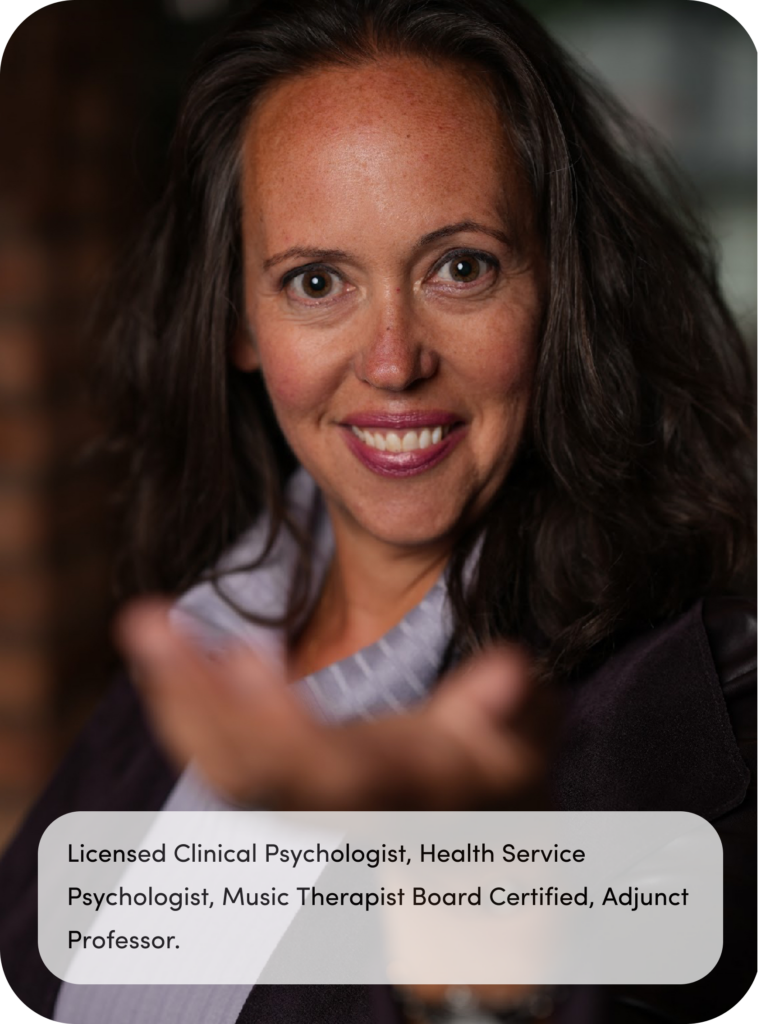“Dr. Cook’s life changing insights are easy to put into practice.”
Untangle Your Mind Without Losing It.
Imagine the brain as a bustling metropolis where your thoughts, feelings and behaviors are represented by colorful balls of yarn racing around a complex neural network of roads. Learn how to navigate this complex system with confidence and clarity. Dr. Cook makes the process of rewiring the brain fun and effective for all ages, leading to lasting improvements in psychological wellness.

Dr. Cook’s life changing advice is easy to put into practice
Harnessing the power of human connection for positive change.
Her superpower is being able to objectively synthesize the intersectionality of the macro external world and the micro internal experiences to offer simple and practical tools that drastically improve mental health and wellness.
Superpower = ADHD & Dyslexia
Contact me
Reach out to discover simple, practical tools for improving your mental health and wellness.
Connect with DR. Bethany
Get in touch to explore personalized strategies for enhancing your mental health and well-being.
Learn more
Get in touch to explore personalized strategies for enhancing your mental health and well-being.

Meet Dr. Cook
Welcome!
I’m a licensed clinical psychologist with ADHD and dyslexia, a music therapist, author, adjunct professor, trainer of therapy dogs, presenter and relatable mental health advocate for various media channels and social networks. I am married to a marvelous British woman, parent two kids and two dogs, and I am an ex-communicated Mormon from rural Indiana living in Chicago who never misses a chance to find humor in life.
The unique blend of conventional and unconventional experiences, neurodiversity, and academic knowledge has given me a multidimensional lens to distill difficulty into direction helping others navigate paths that are as unique as their fingerprint.
Upgrade Options
If you’re seeking individual support, wanting to strengthen family connections or desire to learn more about a variety of mental health topics, I’m here to support you every step of the way. I also offer innovative and engaging professional development programming catered to your businesses specific needs.

Individual/Couples/Family
Everyone deserves care that feels personal and truly tailored to them. That’s why the individuals, couples, and families I work with receive strategies, techniques, and interventions designed specifically for their unique needs.

Wellness Workshops
These psychoeducational workshops provide evidence-based strategies designed for practical, real-world application on various topics related to mental wellness enhancing both understanding and personal growth.

Organizational Growth
Whether it’s running team-building activities, in-service training, or facilitating discussions on sensitive topics, all programs are thoughtfully designed to prioritize employee satisfaction and well-being.
Testimonials
Straight from the Source
As Seen In
Media Highlights

Parents
24th may, 2021

Parents
24th may, 2021

Parents
24th may, 2021

Parents
24th may, 2021

Parents
24th may, 2021

Parents
24th may, 2021

Parents
24th may, 2021

Parents
24th may, 2021















































































Introducing My First Book
A practical and insightful guide for new parents, offering strategies and advice to navigate the challenges and joys of raising children from birth to age two.

Experience the journey of parenting with my personal narration, bringing each chapter to life with practical insights and heartfelt advice.
Dr. B’s Blogs
Sharing Unique Perspectives
Sharing Unique Perspectives
Welcome to my blog! Did you know that reading something which shifts your perspective, even slightly, results in targeted brain rewiring? The prefrontal cortex, like a skilled electrician, tweaks neural pathways in key areas, rerouting outdated beliefs and incorporating the new ‘shift’ without overhauling everything. Begin rewiring your network today without blowing any circuits!
- Blog
As my children drift slowly into a deep, gentle sleep to the sound of the weeping willow trees swaying beside…
- Blog
I went to see the movie by myself on the big screen opening weekend. The reason…
- Blog
I was in another part of the house when my 4 year-old daughter shouted out that she needed…
I Got You
Where Research Meets Relatability.
The ADHD brain is naturally wired for creativity and “out-of-the-box” thinking, thriving in areas like conceptual expansion, breaking through knowledge barriers and divergent thinking. One way this shows up in me is when I create delicious and unexpected meals out of random stuff in the fridge. Other examples can be found in the various ways I share my mental health tips.
From Scales to Tails
Animals heal humans with a kind of magic that’s part cuddle, part comedy, and entirely unspoken. Press your paw to learn more.
Tune into the Good IDEA Podcast for More Tips
For more valuable insights and practical advice on navigating special education and enhancing student well-being, listen to the Good IDEA Podcast. Join us for expert discussions, actionable strategies, and comprehensive guidance tailored for students, parents, and teachers.
Answers to
Frequently Asked Questions
Psychotherapy is a talk-based treatment that helps people manage mental health challenges, emotional struggles, and personal growth by exploring thoughts, feelings, and behaviors.
If you’re struggling with persistent stress, anxiety, depression, relationship issues, or emotional challenges that affect your daily life, or if you simply want support for personal growth and self-improvement.
Finding the right therapist involves considering factors like their specialties, approach to therapy (e.g., CBT, psychodynamic), and whether you feel comfortable with their style. Start by researching credentials, reading reviews, or asking for recommendations, and schedule initial consultations to gauge how well you connect. Trust your instincts—feeling understood and supported is key to a successful therapeutic relationship.
There are many types of therapy, ranging from traditional to newer approaches. Cognitive Behavioral Therapy (CBT) helps change unhelpful thought patterns, while Dialectical Behavior Therapy (DBT) focuses on emotional regulation and interpersonal skills. Humanistic Therapy promotes self-growth and fulfillment while Acceptance and Commitment Therapy (ACT) fosters psychological flexibility, and Somatic Therapy addresses the connection between mind and body. Many practitioners use an integrated approach combining different theories and techniques based on the needs and goals of clients.
Therapy can help with a wide range of conditions, including anxiety, ADHD, depression, trauma, and stress-related disorders. It’s also effective for managing relationship and emotional challenges, grief, behavioral issues, and low self-esteem. Beyond specific conditions, therapy can foster personal growth, improve coping skills, and enhance overall well-being.
Yes, you can switch therapists if the fit doesn’t feel right, as a strong therapeutic connection is essential for effective progress. It’s normal to try different therapists before finding the right one, and most professionals understand this and will support your decision. Prioritizing your comfort and trust ensures you get the most from therapy.
Therapy works by creating a safe, supportive space where you can explore your thoughts, emotions, and behaviors with the help of a trained professional. Through guided conversations, techniques, and exercises, the therapist helps you gain insight, develop coping strategies, and work toward personal growth or emotional healing. Progress happens over time as you apply what you learn in sessions to your daily life.
Online therapy offers the same professional support and techniques as in-person sessions but provides more convenience and flexibility, allowing you to connect from anywhere. While some people find online therapy more comfortable, others may prefer in-person sessions for a stronger personal connection or fewer digital distractions. Both approaches can be effective, and the choice depends on your personal preferences and needs.
You’ll know therapy is helping when you begin to feel more empowered, experience positive shifts in your thoughts, emotions, or behaviors, and handle challenges with greater ease. Progress can also show up as improved relationships, better coping skills, or achieving the goals you set with your therapist. While change may be gradual, a growing sense of clarity and emotional relief are signs that therapy is making a difference.
A psychologist (Ph.D. or Psy.D.) has a doctorate degree and provides talk therapy and assessments for diagnosis. A psychiatrist (M.D. or D.O.) has a doctorate degree and prescribes medications for mental illnesses. A therapist (MFT, MSW, LCPC or LPC) has a masters degree and offers counseling but cannot prescribe medication.
The cost of therapy varies widely, ranging from $75 to $350+ per session, depending on the therapist’s experience, location, and specialization. Some therapists offer sliding scale fees based on income, and many insurance plans cover part or all of the cost. Online platforms may also provide more affordable options.




